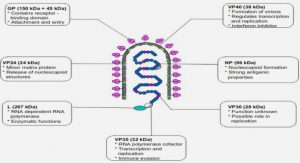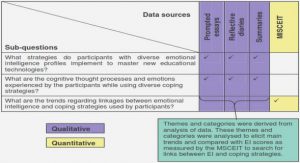Get Complete Project Material File(s) Now! »
CHAPTER TWO WATER AND ITS PRIVATIZATION
“Wherever the river goes, every living creature that swarms will live, and there will be very many fish, once these waters reach there. It will become fresh; and everything will live where the river goes” (Ezekiel 47:9).
INTRODUCTION
It is widely recognized that water is vital or multiple and universally agreed-upon aspects of human well being, like health, economic security, and freedom from drudgery. More than a billion poor people are deprived of access to water of sufficient quantity and quality to meet even minimal levels of health, income, and freedom from drudgery.
Several people die annually from water-borne disease. Women and children especially do not have access to clean water and are as such exposed to infected water, which affect them adversely. Women and children again have to walk several kilometres to water sources to get clean water, and they do this daily carrying big and heavy water containers.
Globally, water is abundant but unevenly distributed in time and space. According to Dr Rogate R. Mshana, a Tanzanian scholar, inequality in water use is a major concern in water management. “There is also a global inequality in water use. The population of Nairobi, Kenya, pays five times more for water than a North American citizen does; for when a toilet in North America is flushed, a person is using the same amount of water that one person in the developing world uses all day to wash, clean, cook and drink”(Stirring the waters 2006:17).
This is an indication that some people have more water as compared to others and this brings inequality as well as inaccessibility into the system. In some parts of the globe, water is wasted especially where people regard it as priceless or where it is under-priced. Value must be given to water in the sense of collecting, cleaning and its distribution. Another problem that the globe faces when it comes to water is its overuse for the wrong purpose.
The church cannot underestimate the fact in Genesis 2 that: “Water flows out of God’s Paradise over the world.” As paradise is a gift for all, water should be regarded also as a gift for all. If this is so then clean fresh water should be available to meet the basic needs of all, instead of being bought and sold.
Christians use water in different ways, like baptism; some sprinkle the water on the cleansing. A new life begins any time water is used for cleansing. Any time we get up in the morning, we wash our faces; take a shower all signs of beginning a new life. In the book of John, Jesus referred to himself as the stream of life-giving water.
Figuratively, water is used for salvation because water is life. Wells in the biblical times were a great treasure because it provides safe drinking water. Jesus asking the Samaritan woman at the well for water to drink is an example (John 7:38-39). It is the duty of the church to make sure that water, which is a symbol of life, reaches all human beings whether rich or poor.
GLOBLIZATION OF WATER RESOURCES
In the book of Isaiah God assures the children of Israel that He never allows what the children of Israel have laboured for to be enjoyed by the foreigners. He promises them that they will now be able to enjoy the gifts given to them by the nature as well as the fruits of their labour (Isaiah 12:8-12). Psalm 24 begins with the words. “The earth is Yahweh’s, with its fullness; the world, and those who dwell therein.” Isaiah assures the children of Israel that the gifts of nature belong to God and he had created them to be enjoyed by all mankind. He is the only one who had power on them.
While Isaiah indicates that the world belongs to God, the current world is in the hands of Global Trade and multinational companies. Everything had been globalized and traded in the international markets, including basic commodities such as water. Global trade is important for all the citizens of the world, because it helps continents and countries to share.
The brighter side of global trade is that it helps the world to share resources, i.e. countries that do not produce certain commodities are able to share them from those that produce them. For an example, the European and North American climates cannot produce certain products such as coffee, bananas, cocoa, yet they need them for their survival. They have the skills of producing or manufacturing beautiful and useful items, but for them to do so, they need to import them. The darker side of global trade is that often global trade is carried out at the expense or exploitation of the poorer nationals. The grain of the third world is and continues to be the food of the first world.
Africa is a rich continent. It is indeed a paradox that Africa has immense human and material resources, yet it is faced with utmost poverty. Africa is rich in natural resources such as gold, diamonds, oil, platinum, coal, water etc. If these resources were managed efficiently, and effectively, poverty, wars and civil conflicts would be part of folklores told to children. Because Africa is not equipped to process the raw materials it has, it relies heavily on developed countries and nations. These are taken away from the continent and processed elsewhere. The raw materials help to give employment to people in other countries while those who produce them earn nothing. To add salt to the wound is that when the finished products return from the first world factories, they are too expensive for the people who produced the original raw material.
Africa is rich in water resources yet the agricultural sector of the continent is doing badly. Rivers such as the Nile, the Congo, The Limpopo, the Zambezi, Lake Tanganyika, Lake Victoria, Lake Malawi, the Lesotho Highland water etc, all have water that can help the continent to produce enough food for its inhabitants. The first world has seen potential in these rivers and they have globalised their water. Waters from these natural resources were channelled by the African colonizers to feed their industries and even went to an extent of restricting its use by the indigenous people.
Millions of litres of water is being exported from Africa in so-called “Mineral Water” content and sold bottled in the developed countries. People are discouraged from using natural water from the rivers and wells and are sold bottled water. Global companies have come into the continent to build huge water companies such as the Rand Water Board and everybody has to pay for the use of water.
Therefore Africans cannot enjoy the fruit of the gifts of nature given to them by God as Isaiah says: “water does no longer belong to nature, God but to companies. Anyone who want to use it, be it for domestic or commercial use, one has to pay.”
OTHER KEY PROBLEMS AND ASPECTS CONCERNING WATER
This research reflects on the critical nature of water-related issues caused by privatization of water system, global warming, climate change, pollution, encroaching aridity and salinity, diseases, water access and political conflict.
Following are some of the key problems and aspects concerning water which the researcher offers to the church leadership, other stakeholders and communities who want to engage their responsibilities for environmental stewardship and economic justice through study, reflection and action:
- Too many people around have little or no access to clean water.
- A key reform option, preferred by many donors and agencies, is the privatization of water system, making it a conditionality for aid, and taking responsibility for making water accessible to all out of governments’ hands.
- The poor are the worst off because they cannot afford high prices. For example, in Nouakchott (Mauritas), low-income families now pay up to a fifth of their household budget on water alone, while in Cochabamba (Bolivia) water prices doubled overnight after privatization (Marcus et al 2002; Schultz 2002). In the poor township of Fort Beaufort (South Africa), water prices increased by 600 percent between 1994 and 1996 following privatization (Afrol News 2002).
- Women and children are especially affected: it is they who, in many contexts, have to fetch water for their household needs.
- There is no one to really be held accountable for the implications of privatization of water system.
- Every day, more than 25,000 die from waterborne diseases.
- Approximately 80 percent of diseases and over one-third of death are caused by contaminated water.
- 65 percent of infant deaths from diarrhoea and cholera could be prevented in developing countries by providing safe water and sanitation.
- A child dies every 15 seconds from bad water and sanitation.
- Billion people lack access to an adequate supply of water.
- 4 billion people lack access to adequate sanitation.
- Over 2 million people mostly children, die annually from water related diseases (wateraid.org).
In addition, poor women bear a disproportionate burden of the unpaid chore of fetching water for domestic use, while they are excluded from many opportunities to create wealth with water. Water has rarely been a “free good” for women in many parts of the world. If poverty is defined as living below generally accepted standards of well being, for multiple and interrelated dimensions of well being, water deprivation is typically one of its characteristics.
One facet of water deprivation that is widely recognized as a typical characteristic of poverty is sub minimal access to safe water and sanitation facilities, which results in severe waterborne diseases, and often in exorbitantly high costs in labor or cash. A comprehensive approach is necessary, one that recognizes that poor people’s water needs are multifaceted.
Water especially affects income generation, another major element of well being, of which poor people are typically deprived. Poor people’s self-employment and wage employment opportunities in urban and especially rural areas depend on water, as well as other factors.
NO WATER NO LIFE
Water is a symbol of life. In the book of Genesis, the Bible affirms water as the cradle of life, an expression of God’s grace in perpetuating for the whole of creation. Water was there even before life was. “In the beginning of creation, when God made heaven and earth, the earth was without form and void, with darkness over the face of the abyss, and a mighty wind that swept over the surface of the water” (Genesis 1: 1-2).
It is a basic condition for all life on Earth (Gen. 1:2ff) and is to be preserved and shared for the benefit of all creatures and the wider creation. Water is the source of health and well-being and requires responsible action from us human beings, as partners and priests of Creation (Rev. 22:1ff). As churches, we are called to participate in the mission of God to bring about a new creation where life in abundance is assured to all (John 10:10; Amos 5:24). It is therefore right to speak out and act when the life-giving water is pervasively and systematically under threat.
The World Alliance of Reformed Churches describes water as “God’s Gift for life”. It is central to the conditions of life on earth and the survival of all creatures on our planet, from the moment of conception to the second of death. The critical nature of this resource has become clearer in discussion and research about global warming, climate change, endangered species, encroaching aridity and salinity, diseases and conflict (Fisher 2006:10).
The question to ask is: “Why should water be equated to life?” Water, to all living things is very vital for various reasons. Water relates to both spiritual and geopolitics. Faith symbols ad sacraments nature our souls while safe drinking water ensures our physical survival.






